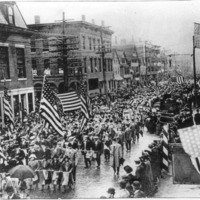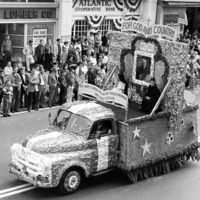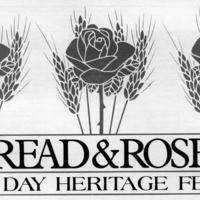For God and Country
For decades to come local memory of 1912 was dominated by the “God and Country” version of events: 1) that the IWW were outside agitators and godless “communists” who had duped the new immigrant millworkers; 2) that the patriotic citizens of Lawrence had saved the city via the “God and Country” parade; and 3) that the strike itself, and participation in it, was shameful. And so it was the “God and Country” parade that was commemorated through the decades, even reenacted at the 50th anniversary of the strike in 1962, while the strike remained a repressed memory, spoken of in hushed tones, if at all.
Only in the 1970s did this begin to change. Local historians, aided by an artist and a journalist from New York, took a fresh look at Lawrence in 1912. What resulted was a new, more favorable interpretation of the strike, which celebrated the strikers’ struggle and achievement, and downplayed the IWW’s radical politics. The strike has generally been portrayed in a positive light and as a source of local pride since the 1980s.
Today, the Bread and Roses Heritage Festival is a celebration of the ethnic diversity and labor history of Lawrence, Massachusetts. This annual festival is celebrated on Labor Day in order to honor the most significant event in Lawrence history: the 1912 Bread and Roses Strike.






